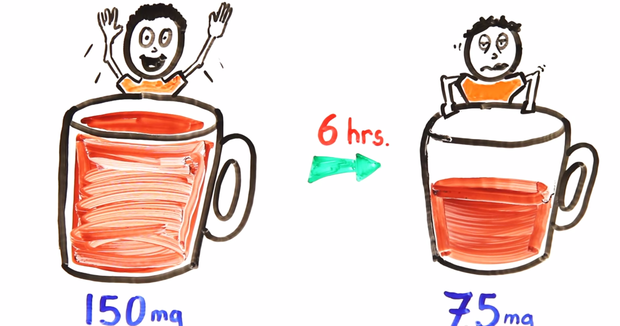This is what caffeine does to your brain
If you're an avid coffee drinker like me, you probably need three to five cups in the morning to feel like a normally functioning human being. You can probably also have a cup at 9 p.m. and still be fast asleep by 10. Caffeine, the main stimulant found in coffee, works on a chemical level to give you a boost of energy. But how does the whole process actually work scientifically, and why do some people need more coffee to stay awake than others? This video from AsapSCIENCE breaks it down.
Related Links
On the chemical level, caffeine is structurally similar to adenosine, a chemical that makes us sleepy. When we drink coffee, caffeine binds to our brain's adenosine receptors, preventing the chemical from binding with the receptors and making us tired. For those of us who regularly drink coffee in copious amounts, our brains develop more adenosine receptors, so it takes more coffee to keep us awake. That also helps explain why we turn into exhausted monsters when we try to wean ourselves off of coffee, as having more adenosine receptors means more adenosine makes its way into our brains.
Caffeine also builds up the adrenaline supply, which increases heart rate, gets blood pumping, and opens up airways. And, caffeine prevents dopamine from getting reabsorbed into your system, leaving the feel-good chemical hanging around in your brain longer. On the downside, this dopamine effect is also what makes coffee so addictive, so keep that in mind the next time you're eyeing that 2nd (or 10th) cup of joe.
Check out the video at the top of this post to learn more about the effect caffeine has on your brain, and whether too much caffeine can kill you.

Caffeine's half-life is a long 6 hours, though sometimes it feels like it wears off after 6 minutes. Video screenshot by Anthony Domanico/CNET

